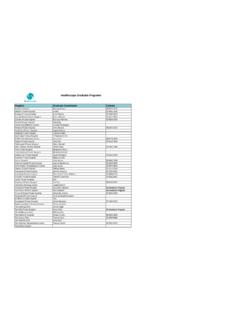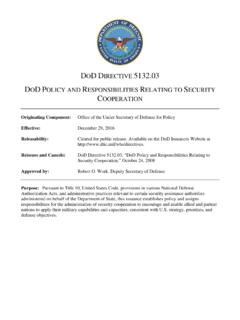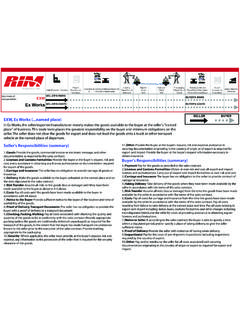Transcription of Important information about your rights and …
1 Important information about your rights and responsibilities Patients' rights and responsibilities Our hospital is committed to providing you with the very best care. This brochure gives an outline of your rights and responsibilities as a patient in our hospital ensuring that you receive the very best care possible from appropriately qualified and experienced staff. If during your stay, you or your family have any concerns, please direct them to the Nursing Unit Manager or the Director of Nursing. Our hospital commits to the rights listed in the Australian Charter of Healthcare rights .
2 These are; access, safety, respect, communication, participation, privacy and comment. your rights You have the right to: Considerate and respectful care, regardless of your beliefs and ethnic, cultural and religious practices. Know the name of the doctor who has primary responsibility for coordinating your care, and the identity and functions of others who are involved in providing care. Seek a second opinion and to refuse the presence of any health care workers who are not directly involved in the provision of your care.
3 Receive information from your doctor in non-technical language, regarding your illness, its likely course, the expected treatment, the plans for discharge from the hospital and for follow-up care. Receive from your doctor a description of any proposed treatment, the risks, the various acceptable alternative methods of treatment, including the risks and advantages of each, and the consequences of receiving no treatment, before giving consent to treatment. Also, unless the law prohibits, you may refuse a recommended treatment, test or procedure, and you may leave the hospital against the advice of your doctor at your own risk after completion of hospital discharge forms.
4 Participate in decisions affecting your healthcare. Be informed of the estimated costs charged by the hospital. Refuse participation in any medical study or treatment considered experimental in nature. You will not be involved in such a study without your understanding and permission. Refuse participation in student teaching activities. Confidentiality and privacy. Details concerning your medical care, including examination, consultations and treatment are confidential. No information or records pertaining to your care will be released without your permission, or the permission of your representative, unless such a release is required or authorised by law or necessary to enable another health care worker to assist with your care.
5 Know, before your discharge from the hospital, about the continuing health care you may require, including the time and location for appointments and the name of the doctor who will be providing the follow-up care. You also have the right to assistance with discharge planning by qualified hospital staff to ensure appropriate post-hospital placement Not be restrained, except as authorised by your doctor or in an emergency when necessary to protect you or others from injury. Retain and use your personal clothing and possessions as space permits, unless to do so would infringe on the rights of other patients or unless medically contra-indicated.
6 Expect safety where practices and environment are concerned. Privacy for visits during established patient visiting hours. Make a comment or complaint about the treatment or the quality of the health services or care without fear that you will be discriminated against. Have your dietary and other special needs considered. Page 1 of 2 V2_01/2016. Important information about your rights and responsibilities ..continued your responsibilities You have the responsibility to: Respect the privacy and confidentiality of other patients.
7 It is illegal to disclose any information about another patient's presence in the hospital or their treatment. This includes verbal and digital communication as well as the use of photographs, videos, etc. and information published online and/or via any social media platform. Violations will be taken seriously and may lead to the discharge of the offending patient and their exclusion from Healthscope hospitals in the future. Civil and/or criminal proceedings may also result. Provide accurate and complete information about present complaints, past illnesses, hospitalisations, medications and other matters relating to your health.
8 Report unexpected changes in your condition to the responsible practitioner. Report if you do not comprehend a contemplated course of action or what is expected of you. Follow the treatment plan recommended by the practitioner primarily responsible for your care. This may include following instructions of nurses and allied health personnel as they carry out the coordinated plan of care and implement the responsible practitioner's orders. Keep appointments and, when unable to do so for any reason, to notify the responsible practitioner or the health care facility.
9 Provide information concerning your ability to pay for services. Accept the consequences of your actions if your refuse treatment or do not follow the practitioner's instructions. Be considerate of the rights of other patients and health care facility personnel and for assistance in the control of noise, smoking and numbers of visitors. Be respectful of the property of other persons and of the health care facility. Behave in a lawful manner and contribute to a safe and comfortable environment. Comments and complaints You may make a complaint either verbally or in writing if you have an issue about your care or the service provided.
10 We encourage you to raise this immediately with a staff member. If after discussions with this staff member you are dissatisfied you may ask to speak to the nurse in charge. If still dissatisfied we ask that you put the issue in writing and address it to our hospital General Manager. Our hospital General Manager will ensure that the issue is dealt with as discreetly as possible and will take reasonable steps to ensure that you are not adversely affected. If you wish to raise an issue anonymously, a report on the outcome may not be possible.








